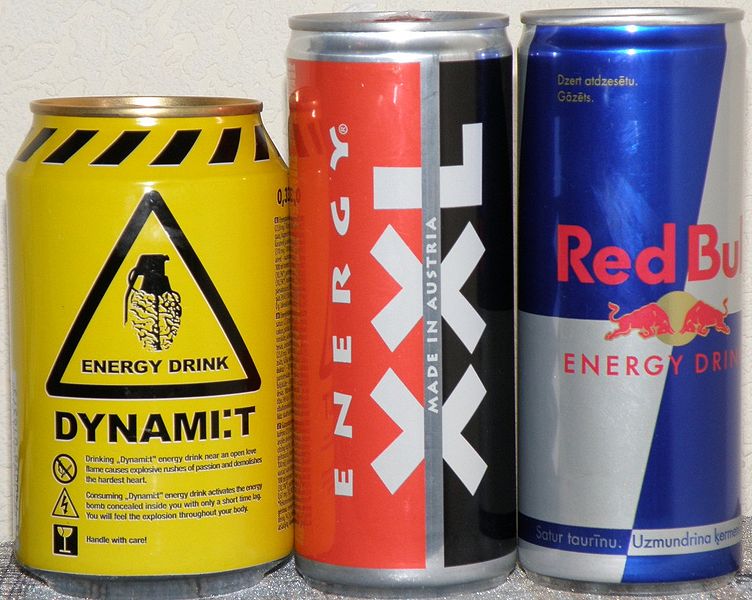Achieving optimal health is a matter of a pretty simple formula:
Consistency + Exercise + Nutrition + Recovery = Results
Truth is relative, and this formula is not immune to the perceptions and opinions of others, but for the most part, we can boil success in our health down to those 4 ingredients.
Our marketplace constantly bombards us with ways to “succeed” in opposition to the formula. Gimmicky diets (NutriSystem, Adkins, and Weight Watchers for example) leave out the exercise component by focusing entirely on the nutrition aspect. On the other hand, magic pills (Solo Slim and Alli for example) downplay the role of proper nutrition.
All “diet” programs can deliver results, but the quality of those results is what interests me the most. NutriSystem, Adkins, and Solo Slim will help you drop pounds, but the end result is an undernourished body, not a healthy one. Since my primary aim with this website is to help people develop healthy, vibrant, and active lives, I’ll stick to talking about getting meaningful and enduring results.
Consistency + Exercise + Nutrition + Recovery = Results
What is consistency if not the practice of doing something frequently enough that it becomes habit or second nature. You must perform all other parts of the formula (Exercise, Nutrition, and Recovery) on a regular and recurring basis. In my opinion, that means for 6 days a week your diet is clean, your exercise routine set, and your schedule arranged to include 7-9 hours of sleep.
Consistency becomes easier when there is a specific plan in place. Enter the adage, “Failing to plan is planning to fail.” Exercising 3 days a week and eating the occasional healthy meal won’t yield the best results because there’s too much “off” time between healthy behaviors. Health isn’t a matter of hitting the mark occasionally. Consistency with frequency is key.
Your plan is better when it’s written down and visible. The very act of writing it down makes the plan more concrete – more real – in our minds. The end result of a written plan is a higher likelihood of following through with the plan.
My plan for consistency is pretty simple: eat a decent breakfast, have a snack at 10:15, eat lunch at 12:00 or so, have another snack around 3:00, exercise at 4:30, have a post workout recovery shake, eat dinner at 6:30, and eat again at about 9:00. I might miss one of those meals along the way depending on how work goes, but I generally eat 5-6 times a day without fail. The workout is scheduled for the same time every day except Saturday, when we work out before noon. Sunday is our day off. No workouts and some “cheating” on our diet.
While I would like to say that I’ve got this whole thing worked out myself, I would be lying if I did. While I can easily maintain my training schedule and eating routine, I still tend to shortcut myself in the sleep department. I tend to lean closer to the 7-hour side of sleep rather than the 8-9 hour side. I usually head to bed between 11:30 and 12:00 while getting up at 6:50-7:00. That’s my night-owl aspect coming into play.
Consistency + Exercise + Nutrition + Recovery = Results
There’s a lot that can be said about exercise (and I’ve said a lot of it here), but I’ll condense it for simplicity. Exercise must be a physically demanding activity that has the effect of burning calories. That’s not to say that exercise can’t be fun – playing tennis, walking 18 holes of golf, surfing, and chasing the kids around the yard are all great forms of exercise. I’m merely stating that exercise must push your body beyond the limits it usually experiences on a day-to-day basis.
Whatever activity you choose should involve at least 30 minutes of physical exertion. Please note the last word in that sentence – exertion. Walking around the parking lot at work for 30 minutes during lunch is better than sitting on your butt for the same amount of time, but don’t expect to burn loads of calories doing it. Walking briskly while keeping your core tight and vigorously moving your arms in concert with your feet for 30 minutes will tax more of the body and burn more calories. You don’t have to gasp and sweat bullets, but pushing beyond just “walking” should be the norm.
Suffice it to say that if your heart isn’t pumping a bit harder and your breathing isn’t noticeably faster during your “exercise,” chances are you’re shortcutting your efforts. Dropping fat will take much longer if it ever occurs at all.
Consistency + Exercise + Nutrition + Recovery = Results
It is indeed true that you are what you eat. If you eat a bunch of junk day after day, your body will reflect that fact by packing on a lot of extra junk in the form fat. While it’s not absolutely mandatory that every meal you eat from now until your dying day is perfectly clean, the majority of your foods should be of the healthier variety – fruits, vegetables, lean meats, and unprocessed carbohydrates.
Alice and I have a lot of variety in our diet that keeps eating well from being completely hum-drum. Our meats usually include turkey breast, chicken breast, venison, fresh fish, shrimp, and lean beef cuts. On occasion, we might come across bison or emu in the grocery store. Those are pretty nice if you can get them. Our unprocessed carbs are fairly standard for us (though not necessarily for everyone) – couscous, quinoa, whole grain rice, corn, potatoes, oatmeal, and cream of wheat. Fruits count as carbs, and we include them in smoothies and protein shakes in addition to eating them straight out of the package.
If you’re one of those that eats on the run, meal replacement powders and bars are a fair substitute for solid foods (but only occasionally). If you must stop at the local fast food joint, choose fresh options like the salads (with light dressing) or un-fried (grilled, baked, etc) options. A great place to stop for a quick bite is Subway. I personally prefer the turkey breast and ham with Dijon mustard and a bunch of fresh veggies stacked on it. I choose the wheat bread over the white options and avoid bologna, cheese, and heavy sauces that can pack calories onto a sandwich in a hurry.
Eating well doesn’t have to be difficult, but it does require a little forethought. If you’re not thinking about the needs of your body as far as fuel is concerned, then you should question your commitment to your health.
Consistency + Exercise + Nutrition + Recovery = Results
You can’t continue to work a body without resting it. Recovery includes eating the kinds of foods that will help your body recover from working out, getting adequate rest, and giving your body at least one day off per week with limited physical exertion.
7-9 hours of sleep are recommended for optimal attention and brain function. While it is certainly possible to sleep less and still enjoy success in your exercise and nutrition programs, the majority of information out there still points to the average 8-hour night for overall health.
The recovery day helps prevent burnout. If you knew that you had to work out and eat clean every day for the next 40 years, chances are you’d never start a healthy regimen. Around our house, we take Sundays off. We relax our diet and don’t engage in any strenuous workouts. We might go for a walk if the weather is nice, but we’re not scheduling a 45 minute butt-kicking with Insanity for that day. It’s my favorite day to just sit around, watch some TV, and relax. While I’m doing that, my body is busily repairing all the damage I’ve done over the week with 6 intense daily workouts and 6-8 hours of karate.
Sundays are also the days that we’re most likely to order a pizza or get some fried chicken for dinner. With a little latitude in our diet on Sundays, we’re less likely to feel deprived of some of our favorite eats. As a matter of fact, I’m looking forward to my Klondike bar, which is sitting in the freezer as I write this.
In Summary
Better health isn’t a mystery; it’s a simple matter of following a basic formula. Leaving out any of the individual components will result in a substandard product – much in the same way leaving eggs out of a recipe will result in a substandard cake. Adding anything else to the formula just unnecessarily complicates it.
Consistently exercising properly, eating well, and allowing your body to recover will eventually yield the desired results – a healthier and happier you!
Be well!
 Monday, January 31, 2011 at 05:02PM
Monday, January 31, 2011 at 05:02PM ![]() Like this article?
Like this article? Habits,
Habits,  breaking habits,
breaking habits,  decisions,
decisions,  healthy habits in
healthy habits in  Diet,
Diet,  Exercise,
Exercise,  Life,
Life,  Motivation,
Motivation,  Psychology
Psychology 




